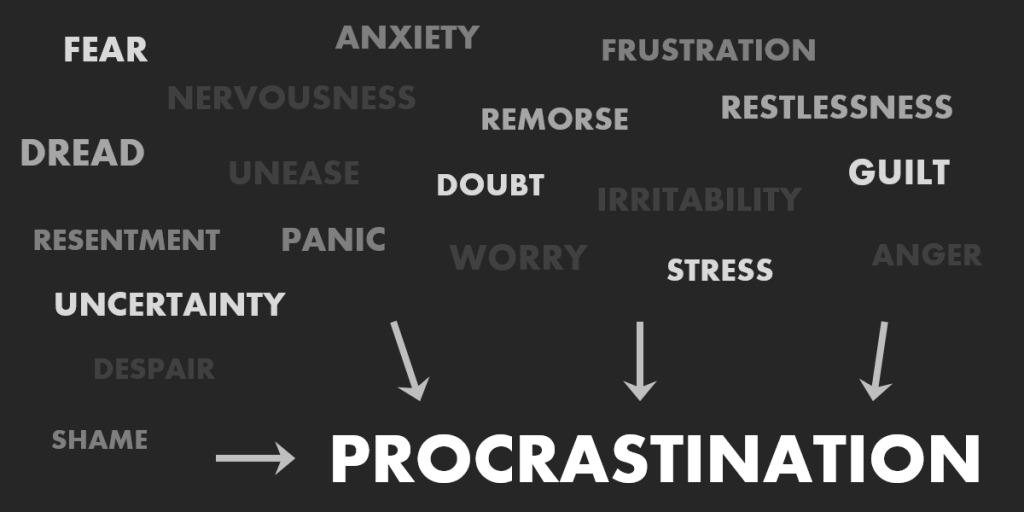Procrastination, the habit of delaying or postponing tasks, is an all too familiar challenge that affects many individuals striving to achieve their goals. Whether it’s putting off work assignments, neglecting personal projects, or delaying important decisions, procrastination can have a significant impact on productivity and overall well-being. In this article, we will delve into the reasons behind why people procrastinate and provide expert strategies on how to overcome this pervasive behavior.
Understanding the Reasons for Procrastination
The victim mindset is a psychological state wherein individuals perceive themselves as helpless and powerless in the face of adversity. After a breakup, this mindset can manifest as constantly blaming oneself or the ex-partner for the failed relationship, feeling like a victim of circumstances, and refusing to take responsibility for one’s emotions and actions. This self-destructive pattern can lead to a downward spiral of negative thoughts and emotions, potentially resulting in more profound psychological issues.
- Fear of Failure
- Lack of Clarity
- Overwhelm
- Instant Gratification
- Perfectionism
- Lack of Interest
Fear of Failure
One of the primary reasons people procrastinate is the fear of failure. By postponing a task, individuals create an excuse for not giving their best effort, protecting their self-esteem from potential failure.
Lack of Clarity
Uncertainty about how to approach a task or a lack of clear goals can lead to procrastination. When people don’t know where to start or how to proceed, they often postpone the task altogether.
Overwhelm
Facing an overwhelming workload can lead to feelings of stress and anxiety, causing individuals to procrastinate as a way to avoid the pressure.
Instant Gratification
In the age of technology, instant gratification is readily available. The allure of social media, entertainment, and other distractions can easily tempt individuals away from their responsibilities.
Perfectionism
Striving for perfection can be paralyzing. When individuals set unrealistically high standards, they may delay starting a task because they fear it won’t meet their expectations.
Lack of Interest
Mundane or uninteresting tasks often get postponed, as individuals prioritize activities they find more enjoyable.

The Consequences of Procrastination
Procrastination can have severe consequences on personal and professional life, hindering progress and goal attainment.
Unfinished Tasks: Procrastination leads to a pile-up of unfinished tasks, creating stress and guilt over time.
Missed Deadlines: Delaying tasks can result in missed deadlines, which may affect one’s reputation and credibility.
Reduced Productivity: Procrastination significantly reduces productivity, as tasks take longer to complete when left to the last minute.
Damaged Relationships: Procrastination can strain relationships, especially in team settings where others may depend on timely completion of tasks.
Hindered Personal Growth: The habit of procrastination can hinder personal growth and development, preventing individuals from reaching their full potential.
The Consequences of Procrastination
Set Clear Goals and Prioritize: Clearly define your goals and break them down into smaller, manageable tasks. Prioritize these tasks based on urgency and importance.
Create a Structured Schedule: Establish a structured daily or weekly schedule to manage your time efficiently. Allocate specific time blocks for different tasks to avoid distractions.
Use the Two-Minute Rule: If a task takes less than two minutes to complete, do it immediately. This simple rule minimizes the chance of accumulating small, nagging tasks.
Embrace the Pomodoro Technique: This time management method involves working for a focused 25-minute period followed by a 5-minute break. After four cycles, take a more extended break. This technique improves focus and productivity.
Practice Self-Compassion: Be kind to yourself and acknowledge that everyone faces challenges with procrastination. Avoid self-criticism and instead focus on self-improvement.
Minimize Distractions: Identify and eliminate distractions in your environment. Turn off notifications, create a designated workspace, and limit social media usage during work hours.
Reward Yourself: Set up a reward system for completing tasks on time. Treat yourself to something enjoyable after accomplishing significant milestones.
Conclusion
Procrastination is a common obstacle that can hinder personal and professional growth, but it is not insurmountable. By understanding the reasons behind procrastination and implementing expert strategies, individuals can break free from the shackles of delay and enhance their productivity and overall well-being. Overcoming procrastination requires commitment and practice, but the rewards of improved focus, increased productivity, and goal attainment are well worth the effort. So, take the first step today and start your journey towards a more proactive and successful life.







![Ta11672 ssy to Auto Connect: A Comprehensive Tutorial [2024]](https://dgpedia.com/wp-content/uploads/2024/09/ta11672-ssy-to-auto-connect.jpg)
